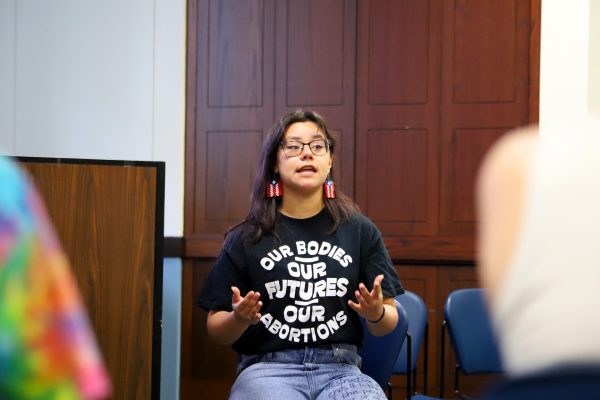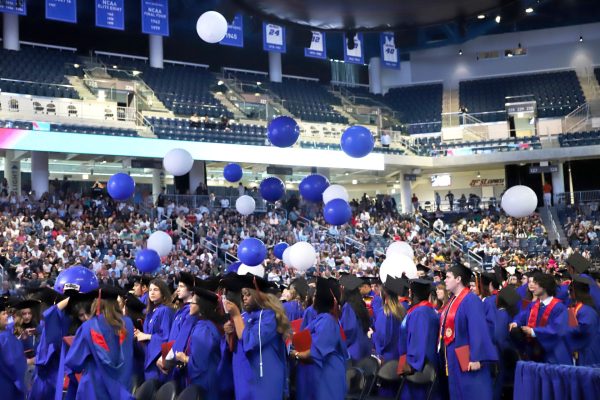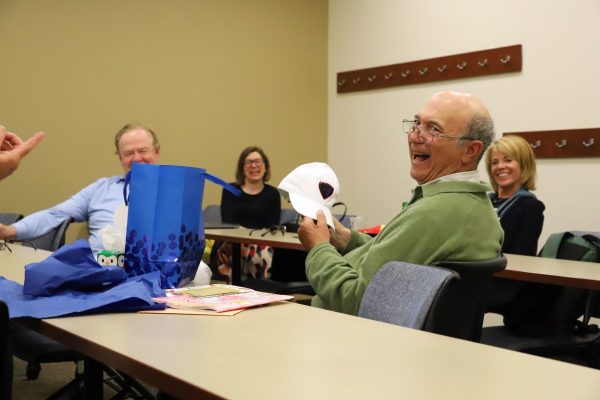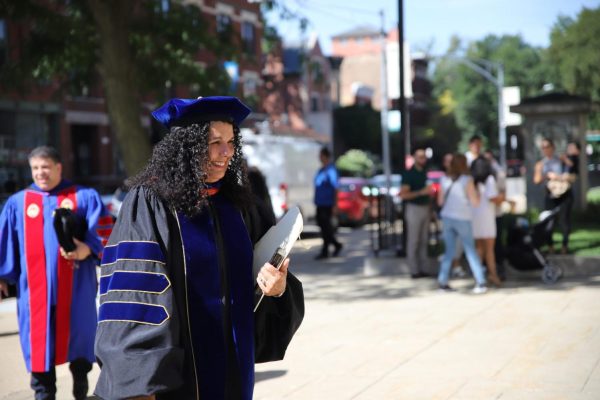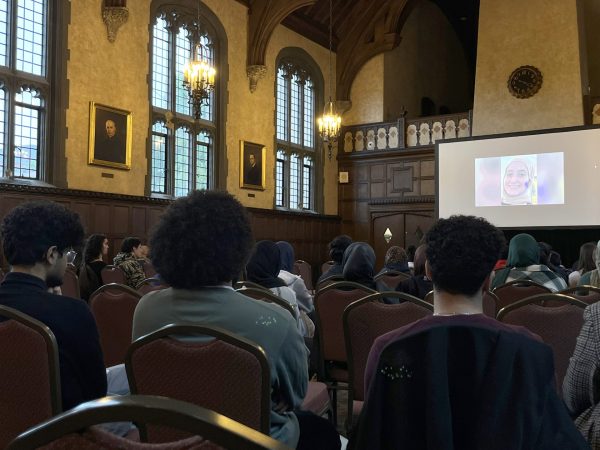DePaul staff council voices concerns for staff in all departments
Credit: Bianca Cseke | The DePaulia
DePaul University Lincoln Park campus.
Do you ever wonder who keeps D2L running, makes sure your classes are scheduled in an organized way or who changes the rolls of toilet paper in Arts and Letters Hall? Students understand that their academic standings are impacted by their teachers. But there are more employees at DePaul whose lives intersect with those of their coeds.
The Staff Council is an elected board that represents all of DePaul’s staff employees. Employees of contracted business on campus, like Chartwells and Ray Meyer Fitness Center, do not fall under this category. Members are voted in by the entire staff for two-year terms each spring. It is the equivalent of the faculty council, though the two are separate boards.
The council meets every month to discuss its agenda. Anyone from the staff at-large is also invited to attend. Currently, 23 members sit on the board.
Stephanie Halaska is the director of academic advising support. She’s worked at DePaul for 12 years and has served on the council for five. She now serves as its vice president and interim president while President Erin Berkowitz is on maternity leave.
“Our goal is to connect staff with the resources they need and the people who can give them information and access,” Halaska said.
Emad Mahou is a software engineer for DePaul. He’s in his first term on the council and chairs the Staff Resources Committee. He ran after seeing things that he felt were substandard to what the university is capable of achieving, namely how the administration handled letting people go.
“There’s people who lost their jobs,” he said. “People who worked here for years and people who contributed to this place. The way that the administration was not up to par, was the way that the whole thing was communicated. There is a disconnect between the top executives and the lower level of people.”
Mahmou’s origins trace back to Syria, where he helped fight in the revolution against the Assad regime. He draws upon his past as a rebel to assist him in his position on the council, “bringing a voice from outside as someone who will be firey and not afraid,” Mahou said.
The council held its monthly meeting last Wednesday, where, over coffee and cookies, it got an update on benefits and salaries from Human Resources. While PowerPoint presentations from Human Resources might make most people yawn, members of Staff Council ran for their positions knowing they would need to dissect the minutiae of bureaucracy to be able to relay important information to their colleagues.
Human Resources staff, including their vice president, Stephanie Smith, used their presentation to address fiscal and health care information for the year, citing the Sibson Benchmarking Survey that compares indicators, like medical plan coverage and retirement-income plans offered at DePaul to peer organizations. Analysis of the survey showed that DePaul offers competitive rewards compared to its peers in academia and outside fields. However, Mahmou is skeptical that these accomplishments are worth much excitement.
“You have to offer that because the minute you stop offering that, you’re not going to get the same people,” Mahmou said. “They make it sound like you should be super grateful. I am grateful, but if you stop doing that, people will start leaving.”
Understaffing within the university is an issue that Halaska said she’s heard from staff, some feel they are being overworked.
“Staff are busy,” Halaska said. “They’ve been taking on more work in a lot of different units. As people have left the university, people have had to take on more in their roles.”
Halaska noted that the news from HR was pretty positive, particularly compared with the last couple of years.
“It’s always good when people on the council can raise questions they’ve been hearing, and it’s good when HR can directly give good info back,” Halaska said. “Always happy with an exchange where everybody can hear directly from the other.”
Although not all staff interact with students on a daily basis, the relationship between the two populations is significant for both parties.
“The faculty is the person that gives you the great education, but staff are the one’s making sure that faculty has the room to be able to teach you,” Mahou said. “Having you on our side is amazing. If we have a need that the administration is reluctant to give us, if the students say the needs should be met for the staff, that’s amazing. We work for you. You’re my stakeholder.”



